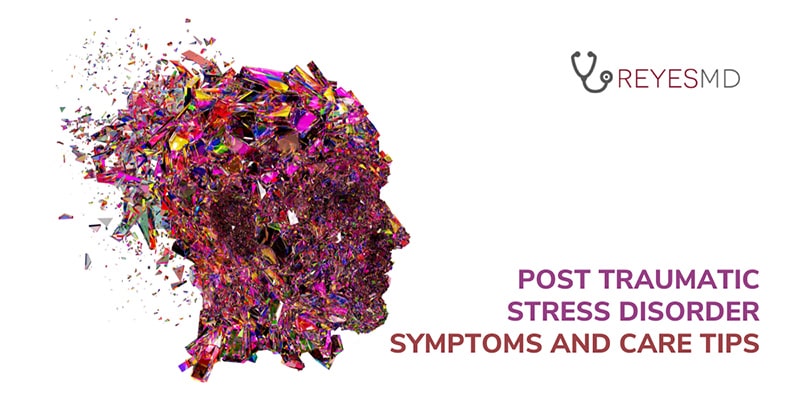Symptoms and Care Tips
PTSD stands for Post Traumatic Stress Disorder, an ensemble of reactions that may develop in a person who has witnessed traumatic events that may have endangered their lives or put them or others around them in harm’s way.
It is very common for people to have adverse reactions to a traumatic event in the first days and weeks. Feelings like heightened arousal, alertness, being alert for signs of danger and being on guard. Such reactions are often accompanied by numbness, sadness, guilt, anger and detachment, often springing up memories of the event and a strong fear that it may happen again. In most cases, these reactions and feelings slowly die down and the person is able to reconduct or resolve these triggers within weeks of the event and recover on their own or with the help and support of loved ones. However, I the distress continues after 3 or 4 weeks, the person is at definite risk of having or developing PTSD or other mental conditions.
Most Common Symptoms of PTSD
- Re-experiencing and reliving the trauma: intrusive, unwanted and recurring memories, flashbacks, nightmares. Intense emotional or physical backlash is common, including sweating, palpitations, anxiety and panic.
- Avoidance and numbing: avoiding reminders (thoughts, feelings, people, places, activities or situations) that spring up memories of the event. Or straight up being unable to remember certain aspects of the ordeal. Numbing is characterized by a feeling of emptiness, detachment, even a growing sensation of limited opportunities and future.
- Mood swings and negative thoughts: alienation, anger, feeling alone, fear, guilt, hopelessness, depression, shame, inability to concentrate or remember, mistrust, feelings of betrayal, and self-blame, as in “I’m bad” or “he world is a dangerous place.”
- Hyper alertness and arousal: sleep and concentration problems, irritability, being constantly ‘wound up’, hypervigilance, getting easily startled, outbursts of anger, self-destructive behavior.
Care Tips
Diagnosis may be the first step towards ascertaining if the malaise is pushing forward and developing into deep-felt trauma that starts interfering with home life, work and relationships. For this, it is important to seek immediate help with the GP, the mental health doctor, a psychiatrists or psychologist, a counselor, a social worker, or the local community health center. If after two weeks, the signs have not started to wear off, it is crucial that the person seek help; however, most successful PTSD diagnoses are after 4 weeks.
- Seek Help and Support as Early as Possible: What information, people and resources are there for you? Support of family and friends is key, but a doctor is the best option if further help is needed.
- Healing Doesn’t Happen Overnight: This is an important self-help tip, as the patient commences to challenge the feelings of helplessness. Trauma and memories are likely to never fully disappear altogether. Reminding oneself of inner and outer strengths plays a pivotal role towards recovery.
- Trauma-Focused Treatments: The cornerstone of PTSD treatment is confronting the traumatic memory of the event. These treatments focus on reducing symptoms, curbing anxiety and depression, and improving quality of life.
- Deep Dive into PTSD Literature: Learning about trauma and PTSD often instils perspective into the patient, thus helping with coping techniques.
- Relaxation Techniques: This does not automatically mean Zen and yoga. Anything goes, especially movement and rhythmic exercise: walking, running, swimming, dancing, allowing the person to focus on how the body feels, rather than on negative thoughts.
- Pursue Outdoor Activities: Rock climbing, hiking, camping, mountain biking, white water rafting, skiing. Spending time in nature and performing activities such as these has proved beneficial for many a veteran as they deal with PTSD symptoms and transition back to civilian life.
- Avoid Drugs and Alcohol: Self-explanatory
- Spend Time with Positive People
Sources:
https://www.helpguide.org/articles/ptsd-trauma/ptsd-symptoms-self-help-treatment.htm
https://www.betterhealth.vic.gov.au/health/conditionsandtreatments/post-traumatic-stress-disorder-ptsd


